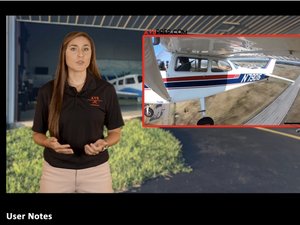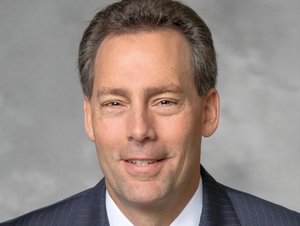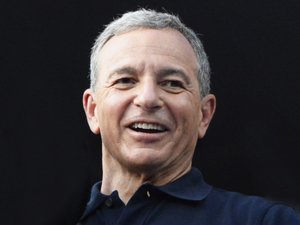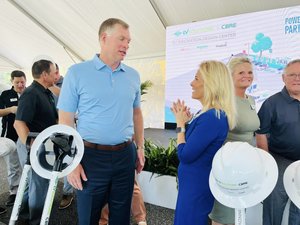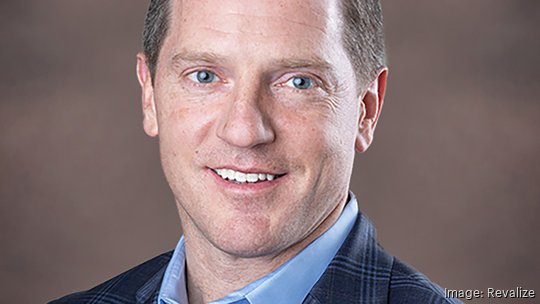
Picking up the baton from outgoing CEO Jim Contardi, Revalize’s new CEO, Mike Sabin, brings with him experience from three years as CEO of SNH Automotive Group and several senior positions at Dun & Bradstreet Corp., including handling its Global Business Solutions work as executive vice president and general manager.
Revalize came together two years ago through the merger of five different businesses that included the Jacksonville firm AutoQuote.
The company specializes in software solutions that include design applications, engineering simulations, product selection, configure-price-quote software, product information management applications, visualization and data analytics.
Sabin recently spoke to the Business Journal about leadership and the future of the company. This interview was edited for length and clarity.
Coming into this position, what’s your leadership approach to developing and building strong teams?
Leadership, the philosophy and practice of it, has always been important to me, probably starting off from my time in the military, and even before that, being active in sports and being a captain of a team. As I think about a team, it starts with finding and bringing on board the right talent and then developing the talent that you already have.
That comes in the form of curriculum and more structured training, but I think more often than not, it comes in the form of really good coaching and feedback from leaders and peers. To do that, we’ve got a model and philosophy of taking care of our people and challenging them to be the best they can be. Taking care of people, in my mind, isn’t giving them four-day workweeks and cushy jobs, it’s providing challenging targets and then supporting and assisting them with the tools, resources and coaching necessary to get there.
Then the last thing, I think, is … the culture is really important. I’ve always been a firm believer, and it may sound a little trite, but, you know, treat everyone with respect and assume positive intent in your engagement. So we outline our values and our culture and we hire for that.
We reinforce it with the team through rewards and examples on a quarterly basis.
What avenues are you looking at for growth right now?
As with many companies, you know, there’s two primary paths in our growth strategy. The first is around our organic growth, and how do we take what we have today and continue to grow that. The second is inorganic, or through acquisition. So, on the organic side, I think it centers around three key areas.
The first is how do we continue to develop products that clearly meet customers’ needs, help them achieve their business objectives and deliver value.
Secondarily, how do we more effectively serve and cover our customers for our sales team, such that we can help them with their expansion needs, and we can find new customers that look like them and may have similar challenges in either their product development or distribution process that we can assist with.
Then finally, we want to ensure that our customers are getting full value out of the product and working through our customer success team to partner closely with customers and ensure that they are receiving the value they signed up for, such that they choose to stay with us every time it comes up for renewal.
From an inorganic standpoint, you’re looking at other industries’ specific software solutions that provide similar light capabilities, perhaps just in a new vertical that would make sense to join the Revalize family and become part of our solution set allowing us to help manufacturers.
What are some of the challenges you see coming up?
I think, particularly as we have a new generation of workers coming into our customers and their customers, there’s going to be a heightened expectation around the experience they have and how quickly we can respond to their needs. That is a key focus area for us is, how do we continue to evolve the way in which we can deliver our solutions and ensure that it does support those drivers in need? I think that’s one challenge.
The second challenge is we’re well-positioned to accommodate people who have a lot of disparate systems within their business.
What have you learned in your career that shapes how you do things now?
I think I’ll actually go back to my very first job, which was in the military, and ultimately the results matter. The actions you take, the activities you drive, are important, but you always have to be conscious and focused on what is the ultimate result you’re driving for. If you’re not going to get there, be willing to stop, pivot and adjust, and adopt a different approach to get there.
It’s never a clean line. There’s always external factors that will cause trips along the way, but I think learning from those and adapting to ensure you’re always keeping in mind, what is that? What is that goal, whether it’s ensuring a customer gets a delivery on time, or extracts the value that they need from the software or growing the business.
Sign up here for the Business Journal’s free morning and afternoon daily newsletters to receive the latest business news impacting the First Coast. For more business intelligence, follow us on LinkedIn, Facebook, Twitter and Instagram.

